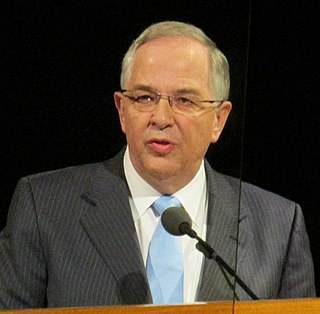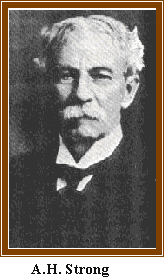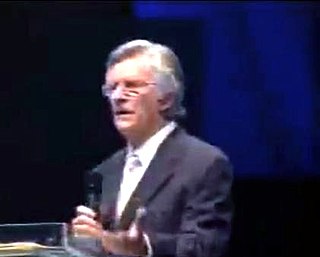A Quote by Daniel H. Ludlow
When the doctrine of repentance is fully understood then it is seen that repentance is all that ever needs to be taught for repentance means not only to stop doing those things which are wrong but to start doing those things which are right.
Related Quotes
We need to ask God for forgiveness and do all we can to correct whatever harm our actions may have caused. Repentance means a change of mind and heart—we stop doing things that are wrong, and we start doing things that are right. It brings us a fresh attitude toward God, oneself, and life in general.
Through repentance the filth of our foul actions is washed away. After this, we participate in the Holy Spirit, not automatically, but according to the faith, humility and inner disposition of the repentance in which our soul is engaged. For this reason it is good to repent each day as the act of repentance is unending.
Repentance is powerful spiritual medicine. There are few spiritual ills it will not cure. Each sin we leave behind through our faith in the living Christ-both those of commission and those of omission-opens spiritual doors. As we feel the potency of repentance, we better understand why Christ admonished the early missionaries of this dispensation to "say nothing but repentance unto this generation."
Repentance is a realization that what God wants from you and what you want from God are not going to be achieved by doing the same old things, thinking the same old thoughts. Repentance is a decision to follow Jesus Christ and become his pilgrim in the path of peace. Repentance is the most practical of all words and the most practical of all acts. It is a feet-on-the-ground-kind-of-word. It puts a person in touch with the reality that God creates.
I truly believe that one of the things that has been lacking in America is a spirit of repentance about the injustices of slavery and the injustices of segregation and racism generally. I truly believe that we cannot come to a place of reconciliation until there is individual repentance and corporate repentance.
God is undoubtedly ready to pardon whenever the sinner turns. Therefore, he does not will his death, in so far as he wills repentance. But experience shows that this will, for the repentance of those whom he invites to himself, is not such as to make him touch all their hearts. Still, it cannot be said that he acts deceitfully; for though the external word only renders, those who hear it, and do not obey it, inexcusable, it is still truly regarded as an evidence of the grace by which he reconciles men to himself.
The saved sinner is prostrate in adoration, lost in wonder and praise. He knows repentance is not what we do in order to earn forgiveness; it is what we do because we have been forgiven. It serves as an expression of gratitude rather than an effort to earn forgiveness. Thus the sequence of forgiveness and then repentance, rather than repentance and then forgiveness, is crucial for understanding the gospel of grace.
There are still people who insist that we have to preach on repentance. Well, I disagree! I think we should do it God’s way – preach the goodness of God and allow the goodness of God to lead people to repentance. Such repentance will be true repentance. It will not be motivated by the fear of judgment and indignation. It will be a genuine repentance that is motivated by His grace, unconditional love and compassion. After all, our ability to love God stems from our first tasting His love for us.
































